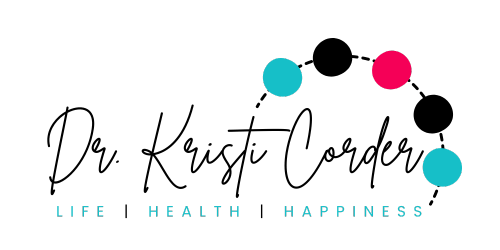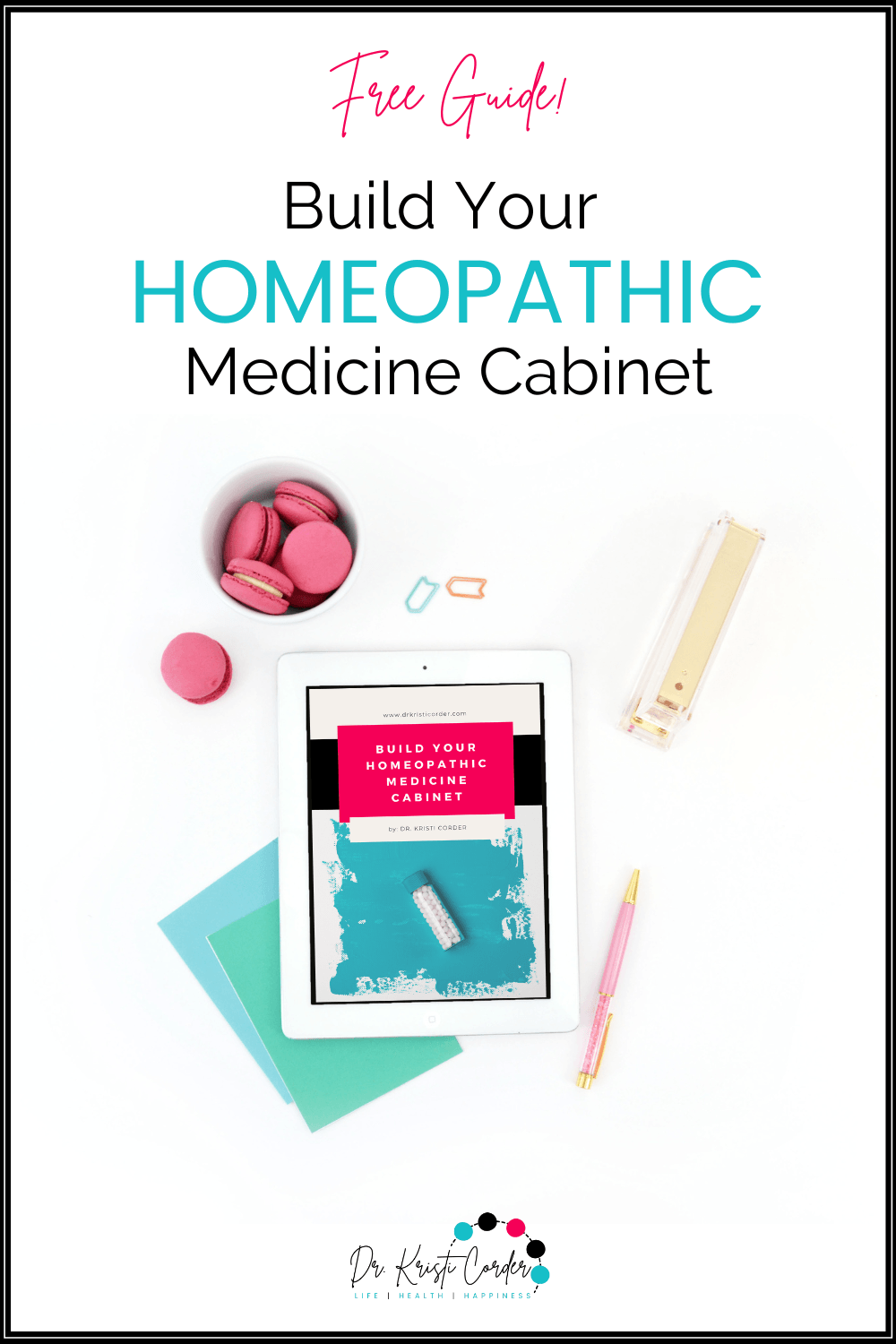Is Blood Pressure the Bad Guy?
This post may contain affiliate links.
Click here to read my affiliate policy.

It's American Heart Month so I want to discuss a topic that comes up in my practice ALL.THE.TIME.
"Dr. Kristi, I was put on blood pressure medications. Is there a way to lower my blood pressure so I can get off these meds?"
Here are the first questions I always ask:
What exactly was your high blood pressure reading?
Did the doctor's office take your blood pressure only ONCE during the office visit?
How was your blood pressure taken?
Have you had high blood pressure readings at previous doctor's visits?
Do you monitor your blood pressure at home? And if so, what are your readings like at home?
Do you see where I'm going with this?
Let me break down these questions and explain why I want to know what the answers are and why you should also consider these questions if your doctor wants to put you on blood pressure medications.
For future reference, I will refer to blood pressure as BP.
What was your BP reading?dline
This is probably one of the most important questions to answer and understand. And it all goes back to the history of BP measurement.
Up until the 1950s, studies only showed a small correlation between high BP and cardiovascular events.
Then in 1957, the Framingham Heart Study showed an increased incidence of atherosclerosis in those people with a BP between 140/90 and 160/95.
But which came first? The chicken or the egg?
Did the atherosclerosis cause the increase in BP or did the increase in BP cause the atherosclerosis?
If a cardiac event is going to happen, it's most likely going to be a result of the atherosclerosis and not directly due to the BP. You see BP is always adapting and changing to maintain homeostasis in the body so that the body continues to function. It's not the bad guy here.
Oh and by the way, 1957 was around the same time hypertensive medications were introduced. I'll let you extrapolate any thoughts you have on that little tidbit of info and how it correlates with the results from the study that came out.
So for the last half of the 1900s, you were considered hypertensive if you had BP higher than 140/90.
In the late '90s and early 2000s, the new standard was 130/80. If your BP was over these two numbers, you were now considered hypertensive. But they really wanted you to stay under that 120/80 mark.
As recent as 2022, the standards have once again changed. We are back to the old standard of 140/90, so I feel like we're moving in the right direction.
What I want you to get from this is that these "standards" are opinons made according to what a large governing body decides is right. They're not absolutes and they're always changing...just like your BP should do based on the stresses it's put under on a daily basis.
Many doctors used to go by the standards of 100 + your age for the systolic BP reading. So it wasn't unusual for someone in their 50s to have a systolic reading in the 150s.
Now don't get me wrong, I don't feel like someone in their 90s should have a systolic BP in the 190s. Lower is definitely better. But too low can also be detrimental. You get my point.
Was there only one BP taken?e
Taking one blood pressure reading is like taking one blood panel and labeling you with some other disease. Most of the time you're going to want multiple readings to get a good sense of what your blood pressure is actually doing.
How exactly was your BP taken?e
I want to know the exact method and environment your BP was taken in, because believe it or not, most doctor's offices don't take BP readings correctly.
According to the CDC (which I know, isn't the Gold Standard of which most of us want to follow anymore), there are certain Best Practices for taking BP.
No food/drink prior - Yes, certain foods and drinks can increase your BP for sustained periods of time, so it's recommended not to eat or drink anything for 30 minutes prior to having your pressure checked.
Empty bladder - Bladder distention can increase both systolic and diastolic BP, so you should always void prior to having your BP checked.
Rest - There should be a minimum of 5 minutes rest prior to taking a BP reading (although the NIH recommends 25 minutes of rest) to ensure that you acheive a stabilized BP reading.
Posture - Slouching, crossing your legs and letting your arms drop by your side will all increase BP, so be sure you are sitting upright with your back supported and both feet flat on the floor. The arm you will have the cuff on needs to be on a solid surface positioned at chest height (and that means heart height).
Proper cuff placement - Be sure the cuff is the right size for you and that it's placed directly on the skin with no clothing between you and the cuff.
No talking - Calm, quiet environments make for better BP readings, so don't talk or be in a fast moving or busy environment when having your BP checked.
I don't think any of my clients have ever said that all of these standards were followed when having their BP checked in their doctor's office. So this fact alone makes me question if there's a true BP issue.
Is there a history of high readings?e
There's this thing called White Coat Syndrome (or White Coat Hypertension). Yes, it's an actual phenomena that has been documented quite extensively.
When someone is in a doctor's office, they can have a bit of anxiety and stress which can actually increase blood pressure. Not to mention the long hallways, cold office, and bright lights aren't the most welcoming for most people.
So if you've had high readings at doctor's visits before (or even if you haven't), it's very possible that this could just be a benign physiological and psychological symptom due to the environment you are put in.
Do you monitor your BP at home?
If there's a history of high readings, it's probably a good idea to be monitoring your BP at home.
So I want to know what your BP readings at home look like compared to what readings you are getting in a doctor's office. Making those comparisons will help to determine if you really do have a high BP issue.
Consider other options for your BP
There are ALWAYS other options to help lower your blood pressure than using pharmaceutical drugs. Reduce stress, eat a healthier diet, use alternative forms of medicine like herbs/chiropractic care/homeopathy, and/or identify other causes and go after those rather than the BP.
Key Points
Here's what I want you to get from all of this:
Question a high BP reading.
Take your BP more than once, even on your own in your own home, if necessary, to get a good baseline of what your typical readings are.
Make sure you are taking your BP correctly.
Consider other options before agreeing to medications.
If you have high blood pressure and don't want to be put on medication or you want help to heal your body so your doctor will take you off of your medication, please reach out for a consult. I'm happy to work with you to bring healing to your body.
As always, please share this information with friends and family members that may need it.

Hi! I'm Dr. Kristi!
I’m a wife, mom, and alternative health care practitioner. I like to live a little differently and go against the grain.
I consult with people of all ages who are looking to ditch the drugs for alternative methods of healing. But I’m most passionate about teaching parents how to care for their kids illnesses at home using homeopathy and other alternative health care practices such as nutrition, natural remedies, minimalist ideas, and more. I’m completely obsessed with ice cream, waterfalls, and all things travel related.
Disclaimer: The entire contents of this website are based upon my own opinions unless otherwise noted. I am not a medical doctor and the information on this website is not intended to be a substitute for professional medical advice, diagnosis, or treatment. It is intended as a sharing of knowledge and information from my research and experience. I encourage you to make your own health care decisions based upon your research and in partnership with a qualified health care professional. If you are pregnant, nursing, taking medication, or have a medical condition, consult your health care professional before using products based on this content.
The information on this website has not been evaluated by the FDA and is not intended to diagnose, treat, cure or prevent any disease.
By using this website, you agree to abide by this disclaimer as well as the Terms of Service, Disclosure Policy, and Privacy Policy.
Copyright 2023 | Dr. Kristi Corder | All Rights Reserved






